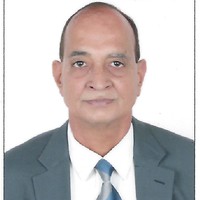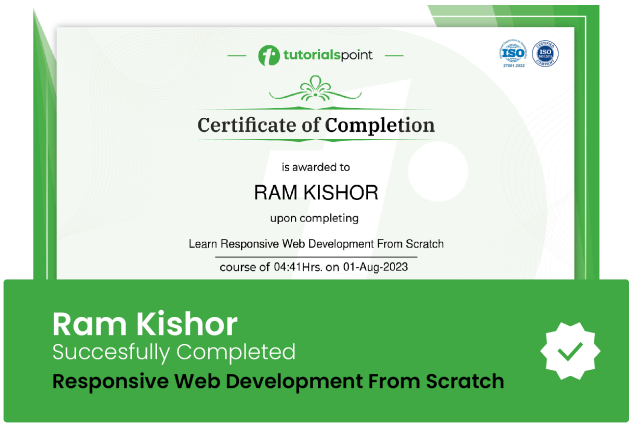Trademark Agents' Qualifying Examination: Part 1
Patent agent exam, everything about it with previous year paper discussed
Lectures -17
Duration -5 hours

30-days Money-Back Guarantee
Get your team access to 10000+ top Tutorials Point courses anytime, anywhere.
Course Description
During the 1990s the economic situation of India was not at all enviable. The government headed by PV Narasimha Rao, AB Vajpayee and later DR. Manmohan Singh integrated the Indian economy with global trade. India became one of the founder members of WTO. India though it had initial reservations about the liberalisation process had no other option but to accept the WTO TRIPS agreement.
After India became a member of the WTO TRIPS agreement there was hectic legislative activity in the field of IPR. A new trademark act, 1999 was passed. Among other things, it introduced trademark protection for the services industry also. It provided very effectively:
A. Judicial remedies (both civil and criminal),
B. Administrative remedies (before the customs authorities in ports of entry) to prevent infringement of trademarks,
C. Abolished the distinction between Registration in Parts A & B.
Now India desires to become a competitor to China in the global supply chain. More and more Indian vendors are getting themselves ready for entering the online global market. Hence, the importance of trademark law can never be underestimated. Of late, the Union of India had been holding regular exams for qualifying as a patent and trademark agent. The number of IPR registration in India is increasing exponentially, giving employment avenues for lawyers and graduate degree holders. This course will enable them to qualify for the examination and make a career as an Industrial Property Rights Professional.
This course has been presented in 4 modules. Each of the modules has 4 to 5 lectures. Each of the lectures is of 15-20 minutes in duration. Furthermore, as supplementary course material the authors have provided links to the previous year's question papers. The course will also display helpful PowerPoint presentations which will give essential information. The video lectures will focus more on problem-solving skills in trademark registrations around the world. Actually, after WTO, the process of trademark registration worldwide is getting more and more unified. Hence, this course will also be useful for learners from all continents.
The first module titled "Fundamentals and history of trademark law", traces the origin of trademarks beginning from 1200 CE and chronicles the important developments in the evolution of trademark law. Trademark law was originally part of the Common Law Rights. Now with the enactments of statutes around the world on the point, it has become part of the statutory rights system.
The second module focuses on the definition of various expressions commonly employed in the Trademark Act and gives a working knowledge of the different types of Registered Trademarks such as Certification Trademarks, Associated Trademarks, Service Marks, Unconventional Trademarks, Collective Trademarks etc. Different types of Trademarks necessitate different application procedures and disposal of the Application by the Trademark Registry.
Module three focuses on the conditions for the Registration of Trademarks and the process of trademark administration of the regime in India. The fourth module explains the procedure of trademark registration and will educate the learner about the absolute and relative grounds for refusal of registration besides explaining the concept of Opposition to Registration etc.
The course will enable the learner to comply with the essential formality checks demanded by the Trademark Registry to complete the registration process expeditiously. The lectures will also highlight the skills needed for
A. Identification of the right forms
B. Relate the substantive provisions of the TM act with the ancillary rules contained in Trademark Rules, 2002
C. Checklist for effective compliance.
D. Time limits within which essential formalities have to be complied with.
Actually, IPR offices in India are adopting e-governance in a big way. These offices give a 10% reduction in the payment of official fees for documents are lodged online. Despite the teething initial difficulties, the efforts of the govt. to introduce e-governance in a big way has begun bearing fruits.
It is known that a trademark is a species in the genus of industrial property right. In order to protect the innovations and the inventive concept in an effective way entrepreneurs have to adopt and implement a comprehensive approach to the protection of IPR. Often, a common man or a layman does not fully understand the distinctions inter se IPR and makes mistakes that may be fatal. The course will also enable entrepreneurs to avoid pitfalls in employing IPR rights as a business strategy. The author has also put up on the Udemy platform a 10-hour video course on patent rights and a similar comprehensive course on Industrial Property Systems. This course is the third course in the series. The second part of trademark law will soon follow covering the areas of
A. Infringement of Trademark
B. Concept of registered – permitted user
C. Rectification of entries in trademark registered
D. Civil, criminal and administrative remedies for the prevention of IPR infringement
E. Appeals, revisions, and judicial review available to aggrieved persons in the implementation of the Trademark Act
F. International arrangements and the procedure for obtaining registrations globally through the Madrid Protocol route.
Goals
What will you learn in this course:
The students will learn:
- History of Global Trademark Law
- Different types of Trademark
- Process of Trademark Registration in India
- How to choose an acceptable Trademark
- Compliance formalities before the Trademark Registry
Prerequisites
What are the prerequisites for this course?
Graduate Degree in any field

Curriculum
Check out the detailed breakdown of what’s inside the course
Module 1
4 Lectures
-
Introduction and History of Trademark Law 15:54 15:54
-
Trademark under the ambit of Industrial Property Rights 18:15 18:15
-
Delegated Legislations of Trademark Law 15:29 15:29
-
Procedure for Registration of Trademarks 15:33 15:33
Module 2
4 Lectures

Module 3
4 Lectures

Module 4
5 Lectures

Instructor Details

Muralidharan R
eCourse Certificate
Use your certificate to make a career change or to advance in your current career.

Our students work
with the Best


































Related Video Courses
View MoreAnnual Membership
Become a valued member of Tutorials Point and enjoy unlimited access to our vast library of top-rated Video Courses
Subscribe now
Online Certifications
Master prominent technologies at full length and become a valued certified professional.
Explore Now


 Updated on Apr, 2024
Updated on Apr, 2024
 Language - English
Language - English
